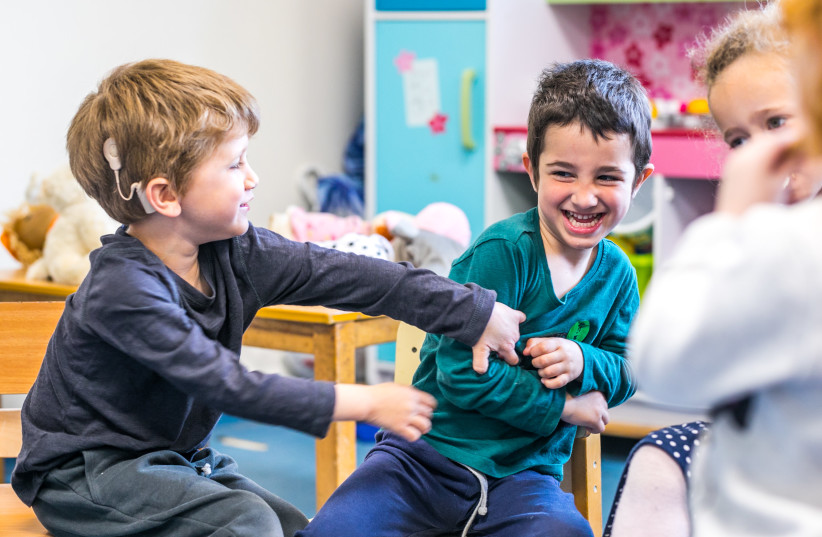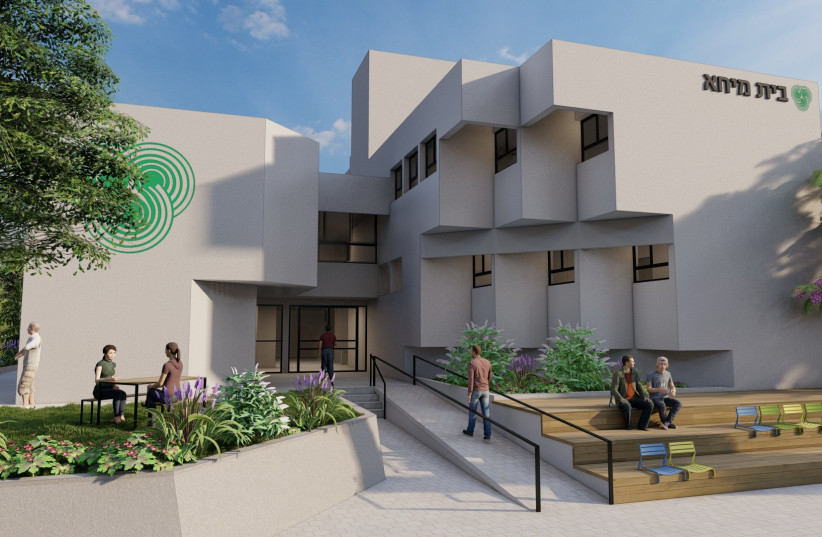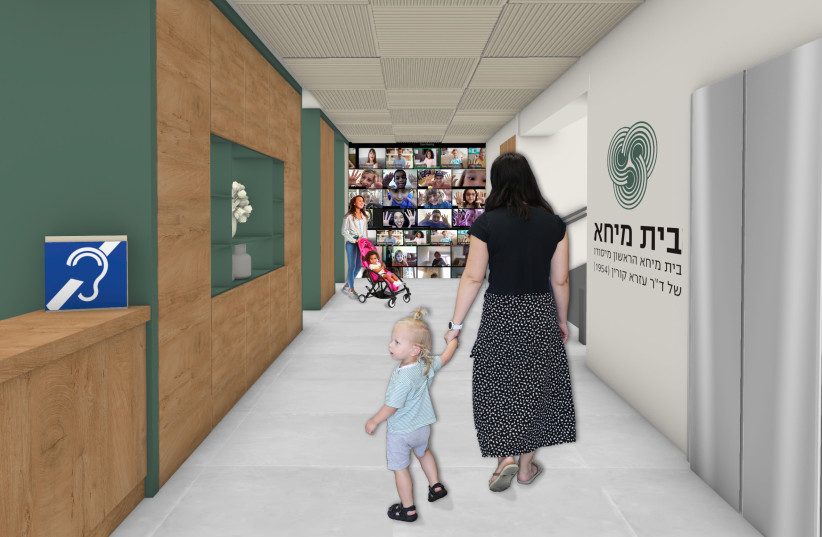When Rona, an 11-year-old girl from central Israel, was just a few days old, she was diagnosed with severe hearing loss after undergoing a routine hearing test at the hospital. The family was referred to Beit Micha - a multidisciplinary center that meets the therapeutic and educational needs of children with hearing loss from birth to first grade.
At seven months, Rona began attending speech therapy sessions, and in the following years, she attended Beit Micha’s special daycare and preschool. By the time she turned six, Rona was ready for a regular elementary school, a happy and charismatic child quick to explain that “like children who do not see well need glasses, I don’t hear well and I need hearing aids.”

For the staff at Beit Micha, seeing their children overcoming their challenges and thriving with the center’s support - with 90% of them able to attend a regular school by age six - is the most rewarding experience.
“In the Western world, for every 1,000 births, one to two children are diagnosed with hearing loss,” the organization’s CEO Roi Pilpel explained. “In Central Israel, an area covering from Hadera to Gedera including 60% of Israel’s population, when a child is diagnosed with hearing loss, the doctors at the hospital refer him or her to us.”
Beit Micha provides the children and their families with assistance at 360 degrees.
“We have a highly professional audiology clinic and a highly trained staff to perform all the necessary tests on the infants,” Pilpel added. “We are also aware of the difficulties that the parents of a baby diagnosed with hearing loss face, and one of our goals is to offer them support, through our team of social workers.”
( Video credit - Shany Kadosh Hendel )
With the help of the professional staff at Beit Micha, the families make a decision regarding the ideal rehabilitation method for their child, including the most suitable hearing aid for them.
"We run a hearing aid bank where families can receive the devices on loan,” the CEO emphasized.
Another service provided by Beit Micha, which operates in conjunction with the Health, Education and Labor and Social Affairs ministries, is support in navigating bureaucracy, ensuring that the families receive what they are entitled to from public institutions, including Israel’s National Insurance Institute.
In addition, Beit Micha runs several educational frameworks, starting from a full-time daycare for children ages six months to three years.
“We designed the program to be a one-stop shop for the parent and the child,” Pilpel said. “This way the child can attend the daycare with specialized staff where he or she is also offered the speech therapy sessions and everything else they need.”

For parents who choose to send their children to a different daycare, Beit Micha also offers the option of a Thursday-Friday program. “This way, two days a week, they have the opportunity to spend time with peers who go through the same challenges they experience and not to feel different,” Pilpel said.
In order to foster understanding and ties between the hearing community and the Beit Micha children, the center also runs an additional initiative - a daycare for infants and toddlers who live in the neighborhood, who are integrated with those attending the program for those presenting hearing loss.
“The children spend time with each other in a supervised framework,” explains Pilpel. “They do many activities together, play, dance, sing and they learn a lot from each other. We have been running this project for twenty years and it is very special.”

Beit Micha also offers a preschool program for ages three to first grade, in conjunction with the Education Ministry.
Established in 1971, the facility is in the middle of its first major renovation in over 50 years, focusing on both the building and the grounds, with the goal of providing its children and their families the most suitable spaces to fulfill the center’s mission: ensuring that every child acquires the tools to develop communication, language, and speech skills and integrates into mainstream society.
The staff held extensive consultations with experts and stakeholders.
The project includes new auditory testing facilities, a re-organization of the building’s interior, new infrastructure, such as plumbing, sanitation, air conditioning, communications and electricity systems, the improvement and enlargement of the daycare facilities, the renovation of the treatment rooms and the provision of comfortable, welcoming public spaces for families and staff.
Beit Micha aims to finish the renovations by the end of the year but it still needs to raise funds.
“A child with a disability deserves nothing less than a child that goes to a regular school and, sometimes even more,” Pilpel concluded. “I believe it is our responsibility as a society to ensure they are offered the best infrastructures and tools to grow and explore the world.”
The article was written in cooperation with Beit Micha. In order to make a donation, click here.
